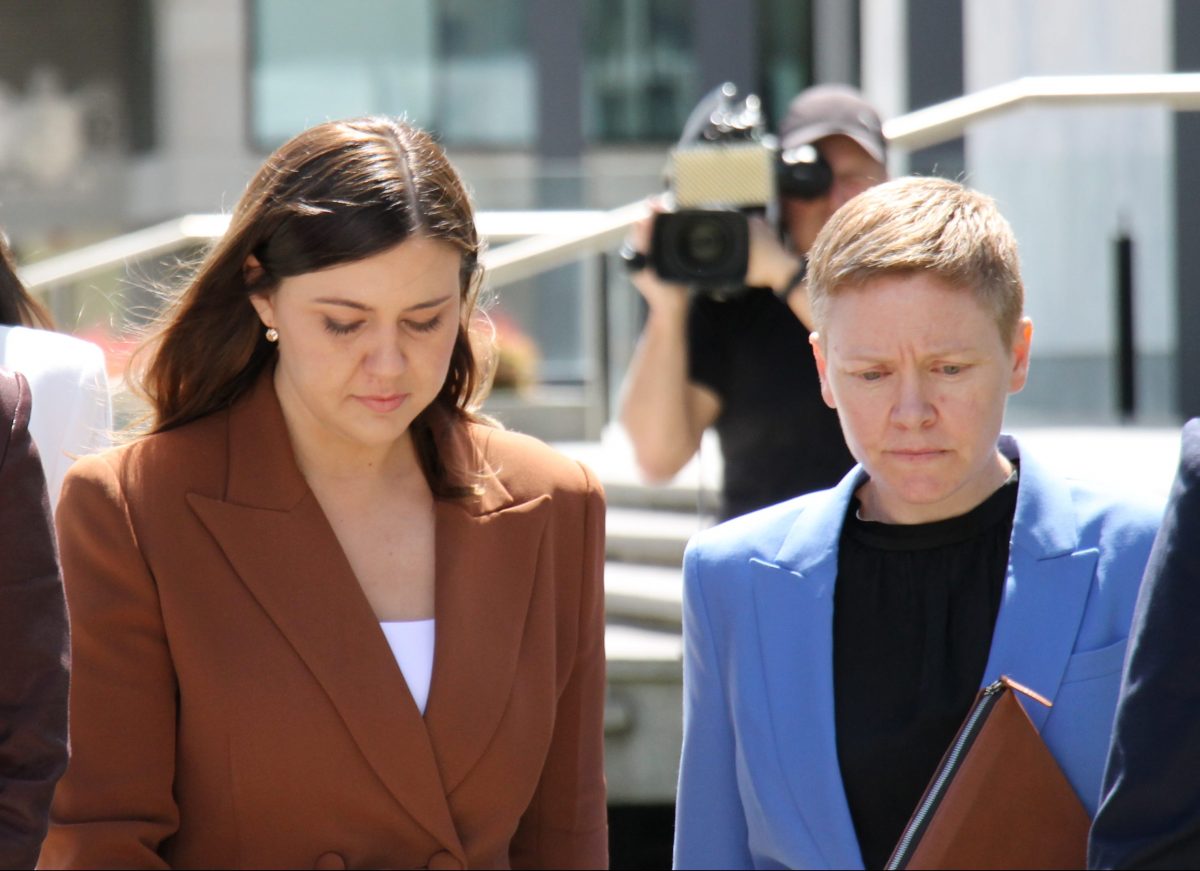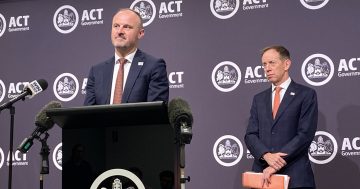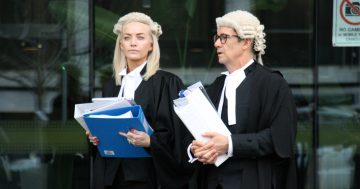
Brittany Higgins and ACT Victims of Crime Commissioner Heidi Yates leave the court after Bruce Lehrmann’s trial was declared a mistrial. Photo: Albert McKnight.
The appearance of ACT Victims of Crime Commissioner Heidi Yates alongside Brittany Higgins after the trial of her accused rapist Bruce Lehrmann had been aborted raised many eyebrows.
What was a government statutory office holder doing lending support and the authority of her office to a complainant as she made a statement to the media, most of which could not be reported?
Ms Yates could be seen nodding and emoting as the distressed Ms Higgins spoke to the media.
She had been supporting Ms Higgins throughout the 12-day trial, which will now have to be re-run in February.
But this was the most public and dramatic scene from the trial events and broadcast across the nation.
Asked about her appearance with Ms Higgins, the Commissioner told annual reports hearings last Friday (11 November) that she took a broad interpretation of the legislation so “victim-survivors” of alleged crimes could be supported throughout the court process.
“A narrow interpretation of offence … which limited support to matters where a court had delivered a finding of guilt would not, in our office’s view, be [in line] with the beneficial intent of that legislation,” she said.
That would mean her office could not support most of the people who sought help.
Attorney-General Shane Rattenbury backed that view, saying that if a crime had to be proven first, nobody would get any support until after the court case had finished.
He said Ms Yates’ role had only received such scrutiny because the intense media interest meant she was filmed at the court more often than if it were a normal trial.
That is precisely the point, and the optics would not have gone undiscussed when Ms Yates was considering how Ms Higgins should be supported during the trial.
The question is not whether Ms Yates’s office should provide support but in what form, by whom and when.
Ms Yates chose to personally support Ms Higgins throughout one of the most sensational and publicised trials the ACT Supreme Court had ever run.
It involved an alleged sexual assault in the office of a Minister at Parliament House after a staffers’ drunken night out.
One could not get a more salacious story in a town where politics, power and the public service are the staff of life.
In that context, the presumption of innocence, already so traduced from the former Prime Minister down, takes on even more importance.
It was unwise and inappropriate for Ms Yates to personally flank Ms Higgins, something that certainly does not happen at every trial.
Others less prominent could have been given the task, and certainly without offering the affirming gestures as the cameras rolled.
The episode only adds to a series of statements and events that give strength to the accused’s defence team that obtaining a fair trial in such a febrile environment is impossible.
Indeed, Ms Higgins’ comments made in the wake of the mistrial have since been referred to the court and police by Mr Lehrmann’s lawyers.
It would better serve the interests of justice for Ms Yates to vacate the public space while maintaining her office’s support for Ms Higgins during the second trial.
Mr Lehrmann’s fate needs to be left to that trial and a new jury.




















